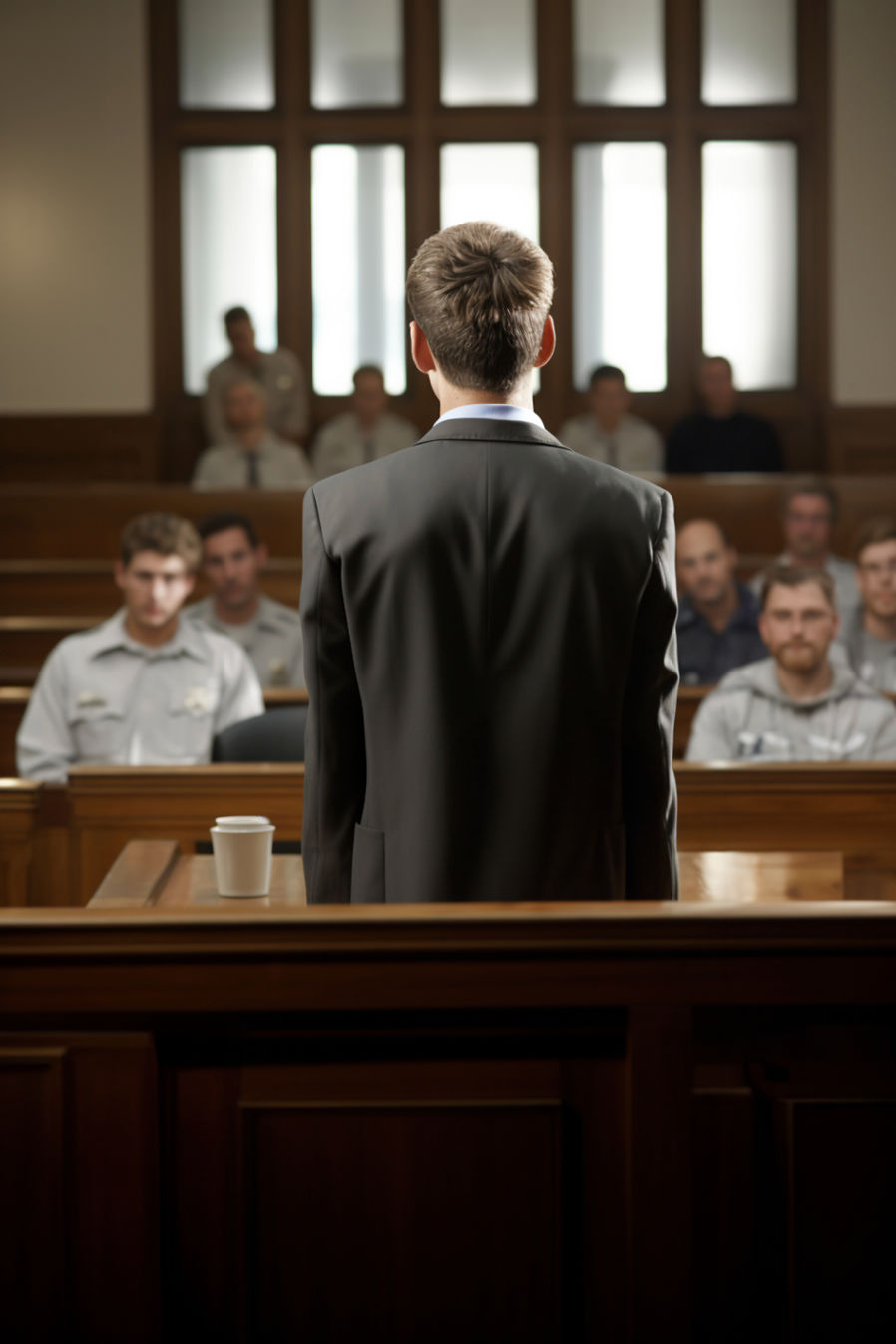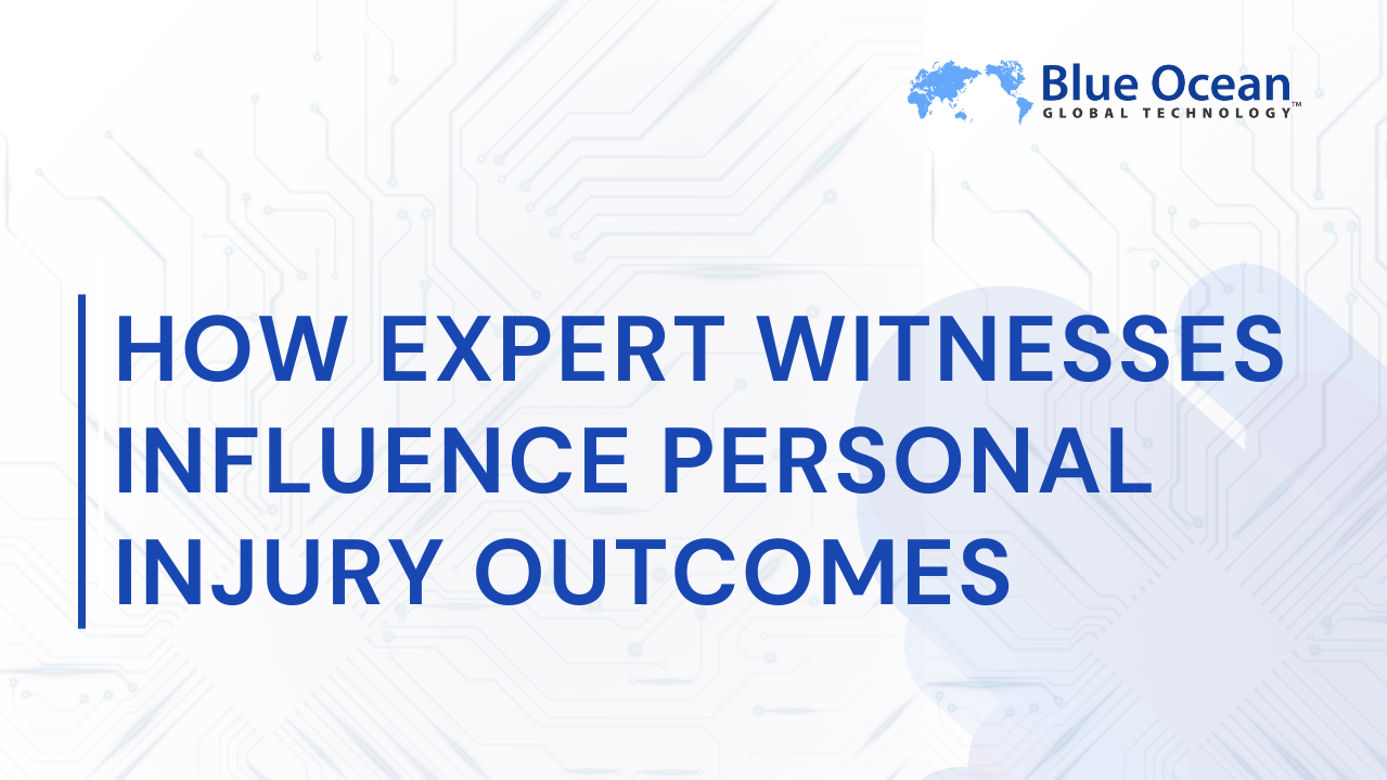How Expert Witnesses Can Make or Break Your Personal Injury Case
Each year, millions of Americans file personal injury cases for injuries and accidents caused by someone else’s negligence. These cases arise from various causes including medical malpractice, automobile accidents, and even dog bites. A defendant who is proven guilty must compensate the plaintiff for losses incurred.
Unfortunately, the process of acquiring compensation is not easy. Most tort lawsuits can take an average of 23 months to resolve. Medical malpractice cases, however, last 31 years on average, with 96.9% settled out of court.
The compensation amount in trials is determined by the judge and jury, highlighting the importance of convincingly presenting one’s case. One of the most effective ways to accomplish this is through the testimony of expert witnesses.

Who Is an Expert Witness?
Expert witnesses are professionals who specialize in particular fields, with refined knowledge or experience that qualifies them to testify in trials. They provide professional explanations and insights into topics related to the cases on trial.
While Subject matter experts testify, they’re quite distinct from eyewitnesses. Attorneys hire expert witnesses to provide specialized insights and evidence, whereas eyewitnesses recount the events they observed.
Insurance and personal injury cases require evidence to be compelling and comprehensive for the jury and the judges. Subject matter experts use their years of experience in their field and in testifying in trials to achieve that. The right expert can even determine the outcome of a trial.

What Does an Expert Witness Do?
Establish Damages
Because of their extensive experience in their field, expert witnesses can assess the damages incurred by the claimant. For instance, a medical expert can evaluate an injury and its impact on the plaintiff’s lifestyle, which can influence the compensation awarded.
Define Obligation
Experts from the same field as the defendant can outline the obligations the defendant failed to meet. For example, an engineer could be called upon in premises liability cases to determine who is liable. The engineer may highlight how the property owners are responsible for the incident that caused harm to the claimant. Similarly, a medical professional can explain the negligence of practitioners to the judge and the jury.
Clarify Complex Issues
Personal injury cases often employ the understanding of complex technical subjects that jurors might lack. They help clarify complex issues by simplifying their subject matter and providing explanations for nonprofessionals. For example, in the cases of medical malpractice, subject matter experts break down the causation and extent of physical damages and symptoms. This contributes to a sense of credibility and trust that forms a favorable opinion in the minds of the jury.
Rebut Defense Arguments
In a trial, a claimant will face rebuttals from defense attorneys, aimed at disproving and invalidating the plaintiff’s claims. Subject matter experts can refute or counter these rebuttals by providing explanations and evidence.
Influence Compensations
Subject matter experts can persuade the judge and jury to decide on compensation in the claimant’s favor. They achieve this by providing explanations of the losses incurred and the statements claimed. They help by establishing conclusive proof that the damages stated will affect the victim in a specific way.
What Should Be Proven in a Personal Injury Case?
To claim compensation, the plaintiff must prove the following:
- Whether the responsible party is an individual or entity. For example, if a person causes damage while operating a vehicle as part of one’s work for a corporation. The liability may extend beyond the individual to the corporation.
- Guilt of the defendant. To show this, the defendant’s obligation, which they failed to live up to, should be defined. This could be caring for a patient, driving safely, or providing safe products.
- The defendant was directly responsible for harming the claimant, whether through negligence or malicious intentions. The onus of proof rests on the plaintiff to show that the defendant was the cause of the loss born through harm done.
- The existence of losses and determining their extent. A subject matter expert can help in establishing the damages incurred and their significance.
Strengthen Your Personal Injury Case with Expert Witnesses
Expert witnesses can be the deciding factor in your personal injury case, offering valuable insights that support your claim. Learn how the right expert can make a difference in securing fair compensation for your injuries.
Impact of a Novice Expert Witness
While an experienced expert witness can contribute to a positive outcome in a case, an inexperienced one can have the opposite effect.

Expert witnesses play a crucial role in convincing the jury of the validity of the claims presented. If an expert witness fails to do so due to incapability, it can lead to severe repercussions. Subject matter experts who provide incorrect or irrelevant information undermine the expert’s credibility of the arguments presented and weaken the case. Incorrect or incomplete information also places the reliability of the testimony in question.
Additionally, expert witnesses who can’t communicate concisely often provide confusing evidence and may cause the jurors to stop paying attention to the subject matter expert. Failure to present clear evidence and facts can prevent a plaintiff from obtaining the compensation they seek.
A lack of professionalism can also negatively impact the case’s outcome. Persuading the judge and effectively responding to the defense attorney requires a presentation of refined character. Maintaining composure under repetitive questioning and interacting with others respectfully. Disrespectful behavior from a subject matter expert can lead the judge or jury to develop a bias toward the opposing party.
Conclusion
Precise attention is needed at every step of a trial. The result of a personal injury case can be determined to an extent by making mindful choices. Choices such as hiring an appropriate attorney, choosing a relevant subject matter expert, and preserving evidence could gain important favors. Utilization of every element can ensure the compensation that a plaintiff is entitled to.
Frequently Asked Questions
1. Can a novice expert witness negatively impact a personal injury case?
Yes, inexperienced or unclear expert testimony can confuse jurors, damage credibility, and weaken the case, potentially impacting compensation for the plaintiff.
2. What qualifications are required for someone to be considered an expert witness?
An expert witness must have specialized knowledge, education, or experience in a relevant field, qualifying them to offer insights beyond general knowledge to support the case.
3. What happens if a subject matter expert is discredited during a trial?
If a subject matter expert is discredited, it can severely impact the plaintiff’s case, as their testimony may lose credibility, potentially reducing the chances of a favorable outcome.
Get the Compensation You Deserve
Building a strong personal injury case isn’t easy, but expert witnesses can add credibility to your claim. Discover how their testimony can help prove damages and liability, moving you one step closer to a favorable outcome.













Comments are closed.